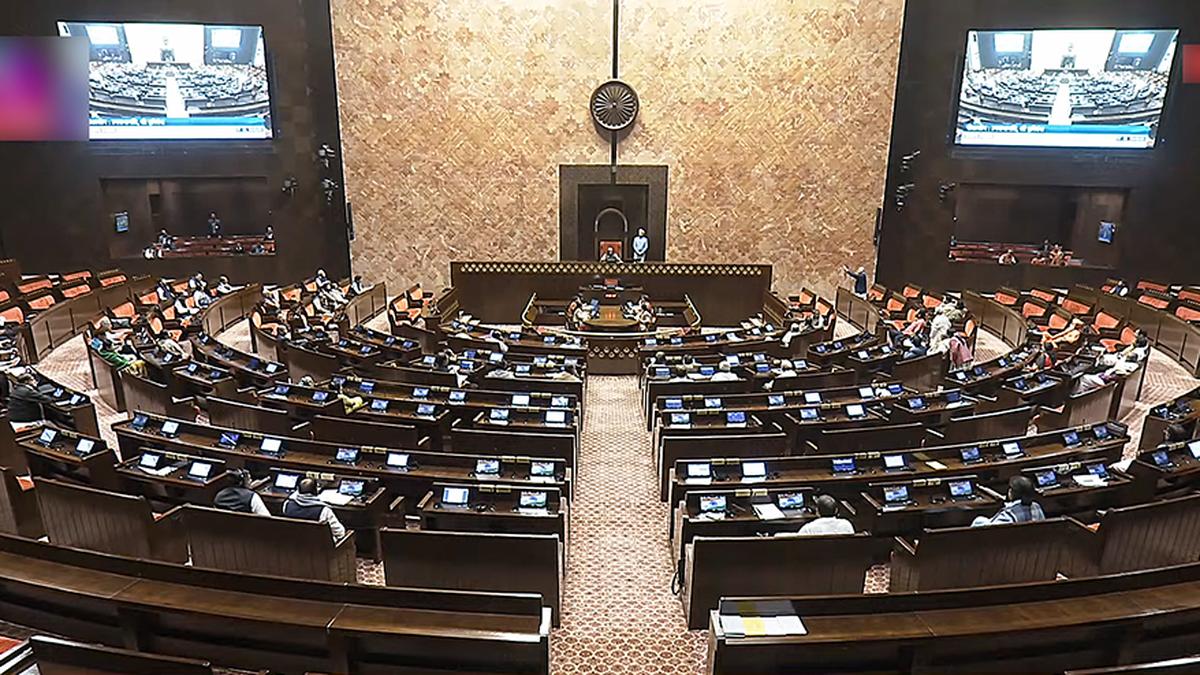 |
|
The Maha Kumbh stampede in Prayagraj, resulting in the tragic deaths of 30 individuals on January 29th, 2025, ignited a firestorm of protest within the Indian Parliament. The Opposition, united in their condemnation of what they perceive as gross mismanagement of the event, launched a multifaceted demonstration across both the Rajya Sabha (Upper House) and Lok Sabha (Lower House) on February 3rd, 2025. The protests disrupted parliamentary proceedings, highlighting a deep-seated discontent with the government's handling of the situation and fueling calls for accountability.
In the Rajya Sabha, the Opposition's strategy involved staged walkouts. Twice during the first half of the session, members left the chamber en masse to underscore their displeasure. Their calls for answers regarding the tragedy fell on seemingly deaf ears, prompting the dramatic exits. The intensity of their feelings was palpable, reflecting a belief that the government's response was inadequate and that the true extent of the mismanagement needed to be fully investigated and addressed. The actions of the Rajya Sabha Opposition highlight a deliberate effort to disrupt the normal legislative process to draw attention to what they view as an urgent matter of public concern.
The Lok Sabha witnessed an even more chaotic scene. Question Hour, typically a time for ministers to answer queries from parliamentarians, descended into pandemonium. Opposition members, led by prominent figures such as Gaurav Gogoi and K.C. Venugopal, raised their voices in protest, demanding the immediate suspension of Question Hour and the commencement of a dedicated discussion on the Kumbh stampede. Their demands were not merely for a discussion; they specifically requested a transparent and complete list of those who perished in the tragic event. The scene showcased a stark contrast between the Opposition's demands for immediate action and the Speaker's attempts to maintain order and adhere to established parliamentary procedures.
Speaker Om Birla's attempts to restore order and continue Question Hour were met with resistance. His pleas to allow the scheduled proceedings to function were drowned out by the chants and protests. His admonition against using destructive means of protest – 'Have the people asked you to raise questions or damage tables?' – reveals the intensity of the situation and the Speaker's concern about the disruption of the parliamentary process. This sharp exchange underscores the deep political divide on the issue and highlights the frustration felt by both the Opposition and the ruling party.
The slogans chanted by Opposition members, notably “Sanatan virodhi sarkar istifa do” (Step down anti-Sanatan government), injected a further layer of complexity into the protest. This slogan suggests a deeper political agenda beyond simply holding the government accountable for the stampede. It hints at broader ideological disagreements and adds a further dimension to the already intense political confrontation. The use of such overtly charged language indicates the high stakes of the political battle unfolding within the walls of Parliament.
Beyond the parliamentary arena, the voices of dissent continued. Samajwadi Party MP Jaya Bachchan, in comments to reporters following a walkout from the Rajya Sabha, accused the government of preferential treatment for VIPs during the Kumbh, highlighting a perceived disparity between the treatment afforded to the elite and the common pilgrims. She also questioned the official death toll, casting doubt on the accuracy of the government's reporting. The accusations of preferential treatment and deliberate downplaying of casualties represent a serious indictment of the government's approach to the event.
Rashtriya Janata Dal MP Manoj K. Jha's remarks echoed a similar sentiment. He emphasized the need for accountability, asserting that while the Kumbh Mela is a continuous event, political parties are not. His point highlights the temporary nature of political power in contrast to the enduring impact of the tragedy on the lives of those affected. This focus on accountability underscores the Opposition's determination to ensure that those responsible for the mismanagement are held to account. The call for a thorough investigation and subsequent actions against the responsible parties forms the core of the Opposition’s demands.
The protests in Parliament reflect a deeper societal concern surrounding large-scale events and the government's capacity to manage them effectively. The Kumbh Mela, a significant religious gathering, draws millions of pilgrims, creating logistical challenges. However, the Opposition's accusations of negligence and the apparent lack of adequate safety measures raise serious questions about the preparedness and responsibility of the authorities. The incident highlights the need for comprehensive risk assessments and robust safety protocols to safeguard the lives of participants at large-scale events. This goes beyond simple political point-scoring; it represents a call for improved governance and a commitment to ensuring that future events are managed in a manner that prioritizes public safety.
The ongoing debate surrounding the Maha Kumbh stampede highlights the tensions between the ruling party and the Opposition within the Indian political system. The differing perspectives on the handling of the event, the accusations of mismanagement and cover-ups, and the broader ideological battle reflected in the slogans used all contribute to a highly charged atmosphere. The parliamentary disruptions reflect the significant political ramifications of the tragedy and the determination of the Opposition to use all available avenues to hold the government accountable. This case serves as a significant example of how a tragedy can escalate into a major political crisis.
The ultimate outcome of this parliamentary confrontation remains to be seen. Whether the government will accede to the Opposition's demands for a full discussion and a complete accounting of the tragedy remains uncertain. However, the intensity of the protests and the wide range of accusations made suggest that the political fallout from the Maha Kumbh stampede will continue to play out in the coming days and weeks. The incident serves as a stark reminder of the importance of effective governance and the potential consequences of negligence in the face of large-scale events.
Source: Opposition protests in both Houses of Parliament on Kumbh stampede
